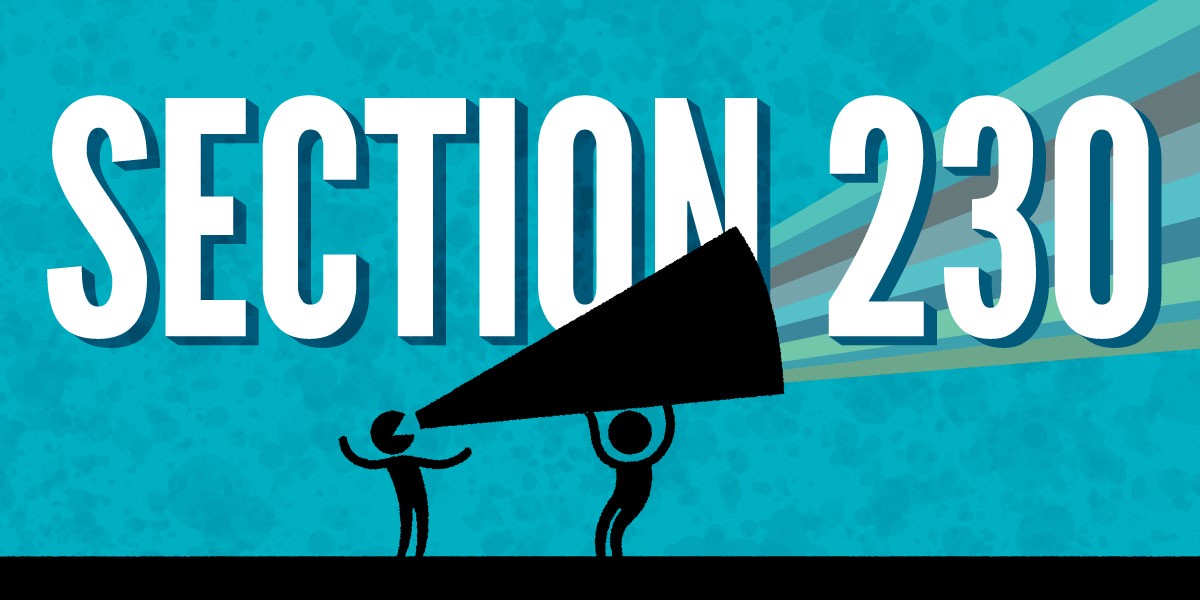In the wake of rolling out its own proposal to significantly limit a key law protecting internet users’ speech in the summer of 2020, the Department of Justice under the first Trump administration actively worked with lawmakers to support further efforts to stifle online speech.
The new documents, disclosed in an EFF Freedom of Information Act (FOIA) lawsuit, show officials were talking with Senate staffers working to pass speech- and privacy-chilling bills like the EARN IT Act and PACT Act (neither became law). DOJ officials also communicated with an organization that sought to condition Section 230’s legal protections on websites using age-verification systems if they hosted sexual content.
Section 230 protects users’ online speech by protecting the online intermediaries we all rely on to communicate on blogs, social media platforms, and educational and cultural platforms like Wikipedia and the Internet Archive. Section 230 embodies the principle that we should all be responsible for our own actions and statements online, but generally not those of others. The law prevents most civil suits against users or services that are based on what others say.
DOJ’s work to weaken Section 230 began before President Donald Trump issued an executive order targeting social media services in 2020, and officials in DOJ appeared to be blindsided by the order. EFF was counsel to plaintiffs who challenged the order, and President Joe Biden later rescinded it. EFF filed two FOIA suits seeking records about the executive order and the DOJ’s work to weaken Section 230.
The DOJ’s latest release provides more detail on a general theme that has been apparent for years: that the DOJ in 2020 flexed its powers to try to undermine or rewrite Section 230. The documents show that in addition to meeting with congressional staffers, DOJ was critical of a proposed amendment to the EARN IT Act, with one official stating that it “completely undermines” the sponsors’ argument for rejecting DOJ’s proposal to exempt so-called “Bad Samaritan” websites from Section 230.
Further, DOJ reviewed and proposed edits to a rulemaking petition to the Federal Communications Commission that tried to reinterpret Section 230. That effort never moved forward given the FCC lacked any legal authority to reinterpret the law.
You can read the latest release of documents here, and all the documents released in this case are here.



